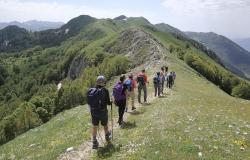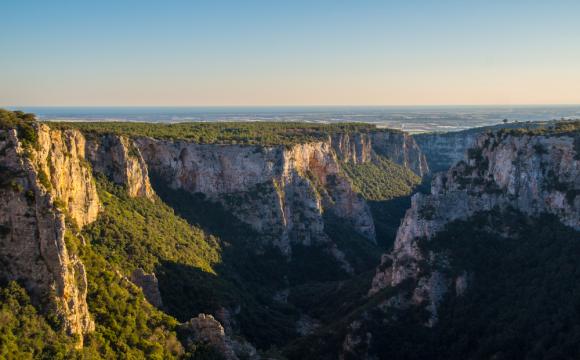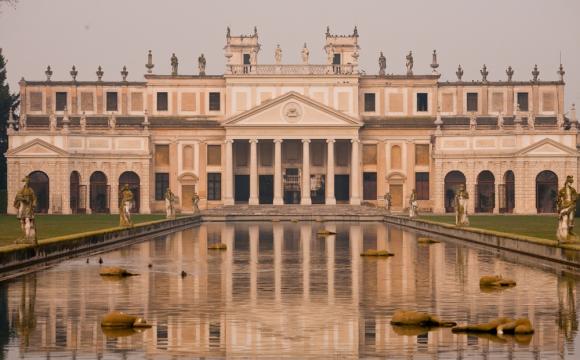Described as the longest and most challenging professional sporting event in the world, The Ocean Race concluded just a few days ago in Genoa. Why was the Ligurian port city chosen as the race’s finish line — or its “Grand Finale,” as organizers ceremoniously put it? Perhaps it’s because the sea is ingrained in the local identity. Maybe it’s because Genoa carries the title of La Superba, bestowed upon it by the poet Francesco Petrarca, signifying its grandeur and civic pride. Then again, it could be due to Genoa’s designation as the “European Capital of Sport 2024” by the Brussels-based nonprofit ACES Europe. Whatever the reason, Genoa, with its historic center and international port, is a city that has long embraced the blue economy, fostered a high-tech environment, and placed a strong emphasis on sports and sustainability.
To mark the occasion, the Levante Waterfront was transformed into the Ocean Live Park village, an architectural marvel designed by renowned Italian architect Renzo Piano. This vibrant space welcomed sailboats that had conquered the world’s oceans. Both sport enthusiasts and curious onlookers were able to admire the five IMOCA boats that undertook the round-the-world journey, the six VO65 boats that participated in the “Sprint” race, and numerous other historic boats.
What is The Ocean Race?

“It gets under your skin. It’s such a cool thing to do, the crews that you meet and the experience that you have. Just that feeling, that moment of stepping on the boat and pushing off the dock, that’s the feeling I long for,” said Libby Grenhaalagh, the Volvo Ocean Race navigator and two-time competitor.
This 14th edition began on January 15, 2023 in Alicante in Spain, and ended in Genoa on June 27, though the associated revelry didn’t wrap until July 3. The winner of the final leg of The Ocean Race VO65 Sprint into Genoa was the WindWhisper Racing Team. Among the five IMOCA boats, the 11th Hour Racing Team became the first US-flagged team to win the final race.
The details of this or any other year, however, can somehow feel both monumental and like mere blips on the radar. The Ocean Race is an obsession, and many of the world’s best sailors have dedicated years — even decades — of their lives trying to win it. Since 1973, The Ocean Race has provided the ultimate test of a team and human adventure. In close to five decades, it has maintained an almost mythical stronghold on some of the world’s greatest sailors, and served as a proving ground for the legends of the sport.
Take Sir Peter Blake, a New Zealand yachtsman who competed in the first edition of what was then the Whitbread Round the World Race in 1973–74, coming back again and again until he finally secured an overwhelming victory in 1990.
Since the first race, the boats have become faster, the crews are now professional sailors at the top of their game, and the technology, particularly in terms of communications, has evolved tremendously. But the sea itself never changes, and the race around the world is still a major human challenge, inspiring the relentless pursuit of victory by each team.
While so much has changed over the past 50 years, the essence of the race is the same. The ocean is as challenging, beautiful and dangerous as it ever was, and the crews racing their carbon fiber boats were as driven to win as any of the early pioneers who raced around the world.
That their destination was Genoa didn’t change much about the race itself or the thrill of the competition. But it did make the port city a more prominent participant in international discussions with even higher stakes.
Establishing the Rights of the Ocean

Back in March of this year, The Ocean Race, in collaboration with the municipality of Genoa, inaugurated the “Genova Process,” an inspiring series of innovation workshops bringing together experts in international law, politics, diplomacy and ocean sciences. This collaborative platform provides a vehicle for discussing challenges and opportunities related to the oceans.
“Scientific research and the cultural heritage intertwined with the sea are the pillars of the Genova Process. They provide essential foundations for comprehending the environment in which we operate and establishing the principles of Ocean Rights,” said Antonio Di Natale, a marine biologist and scientific consultant representing the municipality of Genoa.
The goal of this project is to craft a preliminary version of the principles for a charter of Ocean Rights, which will be presented to the United Nations General Assembly in New York in September 2023. This universal declaration will serve as a framework of regulations, fostering the flourishing of the ocean ecosystem.
“Genoa is not just a port city. Above all, it is a city of the sea, and as such, we occupy a leading position in preserving it,” said Marco Bucci, the mayor of Genoa.
Projects continuing to make waves
Within the framework of the event, the project “Eyes on Plastic” was also unveiled, with Genoa serving as an international pilot city. The project’s objective is to combat and collect abandoned plastics in the sea and the environment.
“Genoa is at the forefront of the international fight against plastics and microplastics both in the sea and on land," said Francesco Maresca, the councillor in charge of the Port of the City of Genoa.
The trailblazing project deploys cutting-edge technology for identifying plastic accumulations in marine environments and adjacent waterways. By combining environmentally friendly approaches with the data captured by cameras operated by the municipality of Genoa for security and civil protection purposes, the project will generate data streams that will facilitate the geolocation of plastic waste deposits. A web application empowers individuals to report such waste, putting them in touch with local stakeholders, like fishermen and social cooperatives, to effectively address the issue.
While the athletic action of The Ocean Race catered primarily to sports enthusiasts and environmental advocates, the hype surrounding the event brought about impactful educational opportunities for young people, extending well beyond the race itself. One ongoing initiative is “Generation Ocean,” developed in collaboration with 11th Hour Racing Team. A comprehensive educational program for students ages 12 and up, available in 11 languages and flanked by a guide for instructors, Generation Ocean helps young learners understand the pivotal role the ocean plays in sustaining life on Earth, along with the multitude of threats it faces and the solutions it needs.
Genoa’s stint as host city for the Grand Finale of The Ocean Race not only offered exhilarating entertainment for residents and a multitude of visitors from across Italy and abroad, but also heightened awareness around maritime sustainability issues and renewed focus on safeguarding our planet through policies and projects. This momentous occasion underscored the imperative of consistently protecting our oceans — and publicly cemented Genoa’s commitment to the cause.



















